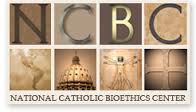Statement of The National Catholic Bioethics Center on the Charlie Gard Case
Summary:
- Charlie’s case raises issues about who should be making the decisions about Charlie’s care: the hospital, the courts, or the parents.
- With no evidence that the continuing interventions are physically doing harm or causing significant pain, the judgment of the patient or the patient’s proxy should be followed, rather than that of a court or hospital or insurance company.
- When a child’s malady is incurable, the request to bring the child home to die, rather than leaving the child in the midst of hospital machinery, should be respected.
_________________________
Charlie Gard, an eleven-month-old child in England, has a life-threatening disease called mitochondrial depletion syndrome, which prevents his cells from producing the energy needed to sustain his organs. Only a handful of cases have been seen in the world. His parents are both carriers of a faulty gene that causes the syndrome. Charlie was about three months old when the symptoms of the syndrome began to appear, and since then they have gotten worse. He is now on a ventilator at London’s Great Ormond Street Hospital. He cannot move or breathe on his own.
His parents have argued that an experimental therapy in the United States might help him. Nucleoside bypass therapy is a noninvasive approach involving an oral medication, which might help repair Charlie’s mitochondrial DNA and provide his body with the compounds that he isn’t able to produce. The hospital wants to stop his life support, and the courts in the United Kingdom have judged that this is the only option the parents should be allowed to pursue.
Charlie’s case raises questions about whether the life support he is receiving should be considered disproportionate (extraordinary) or not, and whether further therapy, even in an experimental form, might be reasonable and worth pursuing. It also raises issues about who should be making the decisions about Charlie’s care: the hospital, the courts, or the parents.
The parties involved clearly differ in their judgment about whether to discontinue Charlie’s ventilation or pursue further interventions. In cases of disagreement, it is unfortunate and painful to have to turn to the courts for a kind of resolution. The decision to discontinue such interventions ultimately lies with the patient—or in this case with the parents as the child’s proxy—as noted in the Ethical and Religious Directives for Catholic Health Care Services of the US Conference of Catholic Bishops (http://www.usccb.org/about/doctrine/ethical-and-religious-directives/): “Proportionate means are those that in the judgment of the patient offer a reasonable hope of benefit and do not entail an excessive burden” (directive 56). With no evidence that the continuing interventions are physically doing harm or causing significant pain, the judgment of the patient or the patient’s proxy should be followed, rather than that of a court or hospital or insurance company.
In pediatric cases in general, children can manifest a remarkable resiliency and ability to improve. Hence, when judgments differ, clinicians often seek to “err on the side of life,” even in a case like Charlie’s that involves a very serious genetic malady for which a cure is not available. Certainly, experimental therapies do sometimes offer a sliver of hope for ameliorating symptoms. If the burdens of the proposed experimental treatment are not themselves significant, it may be justifiable for the parents, who have gathered the needed financial resources through crowdfunding, to attempt this form of intervention for the benefit of their son, even if that benefit might not be long-term or curative.
Media reports have also stated that the hospital would not allow Charlie to go home to die. If the statement is true, it’s not clear what was behind the decision. The Ethical and Religious Directives for Catholic Health Care Services address this situation in directive 61: “Patients should be kept as free of pain as possible so that they may die comfortably and with dignity, and in the place where they wish to die.” When a child’s malady is incurable, the request to bring the child home to die, rather than leaving the child in the midst of hospital machinery, should be respected unless there really are significant reasons to the contrary.
The Pontifical Academy for Life issued a brief statement expressing support for Charlie Gard and his family in this difficult situation. One line of the statement reads, “We must do what advances the health of the patient, but we must also accept the limits of medicine and, as stated in paragraph 65 of the encyclical Evangelium vitae, avoid aggressive medical procedures that are disproportionate to any expected results or excessively burdensome to the patient or the family.” The referenced paragraph actually restates the Church’s position that disproportionate treatment is not obligatory; thus, an individual declining such a treatment on the grounds of its burdensomeness would not be committing suicide. Evangelium vitae does not argue that if a treatment is aggressive and disproportionate, there is an obligation to reject it. Nor does the encyclical reject the possibility of trying experimental treatments.
The statement by the Pontifical Academy for Life was followed by a comforting statement from Pope Francis, issued through a spokesperson who noted that “the Holy Father follows with affection and emotion the situation of Charlie Gard, and expresses his own closeness to his parents. He prays for them, wishing that their desire to accompany and care for their own child to the end will be respected.”
Cases like that of Charlie Gard are always difficult to analyze solely on the basis of media reports. Patient confidentiality and privacy laws often prevent (or are used to prevent) the release of detailed health information that can be essential to forming a comprehensive and informed moral assessment. As rhetoric and combativeness rise among disputing parties, one can face significant struggles in trying to sort out truth claims. Matters may be further complicated by the fact that parents often feel pressured in a hospital environment. Families sometimes feel abandoned as they struggle to care for a loved one in the hospital, trying to get information, permission to visit, or approval for certain procedures. In general, it is necessary to work assiduously to keep communication open between families and health care professionals, so that decisions about a patient’s care can be made in an informed and reasonable manner, with respect for the consciences of both family members and health care professionals.
https://www.ncbcenter.org/









https://www.ncbcenter.org/